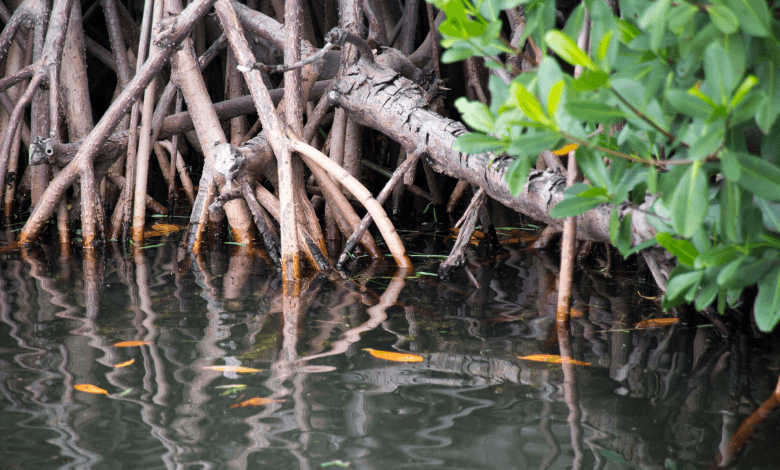In the 90s, there used to be a saying among environmental researchers and contract engineers in the UAE capital that destroying even one mangrove leaf could get them imprisoned. It’s a joke, not one that demonstrates the nation’s commitment to mangrove conservation.
During that time, climate change had not become a buzzword. In 1993, researcher Ronald Loughland moved from Australia to Abu Dhabi as a young PhD student. He studied the mangroves along the Arabian coast and found something astonishing.
The rulers’ passion for protecting the tropical wetland plants amid a time when they were being destroyed globally surprised Loughland, now 60. “That’s pretty important and that was because of the plantation programmes,” he told The National.
Dr Loughland claims to have planted millions of mangroves in the capital in the 90s, noting environmental conservation is in the DNA of the rulers. He said between 1990 and 2021, the area of mangrove forests in the emirate increased by around 50%.
Emiratis’ deep love for the environment
The researcher says he has seen first-hand the keen interest the UAE’s Founding Father, the late Sheikh Zayed bin Sultan Al Nahyan, took in ecological conservation. “I observed Sheikh Zayed and his sons in the field, and they had a contagious enthusiasm for the environment.”
Furthermore, Dr Loughland said he also had the privilege of accompanying Wilfred Thesiger, a legendary British explorer and travel writer. Also known by his Arabic name, Mubarak Bin Landan, Thesiger regularly used to spend the winter in Abu Dhabi.
The explorer was known for his extensive trips to the Arabian Peninsula and Africa during the 1940s. He often accompanied Sheikh Zayed on trips and they shared a mutual appreciation for the desert’s beauty and the importance of environmental conservation.
Read More: Turkey Declares Significant Update To Visa Policy For Omani Citizens
Dr Loughland said the UAE capital is on the right track in terms of meeting its ambitious goal of planting 100 million mangroves by 2030. 44 million of the trees have been planted since 2020. The goal is meant to help the emirate achieve climate neutrality by 2050.


















